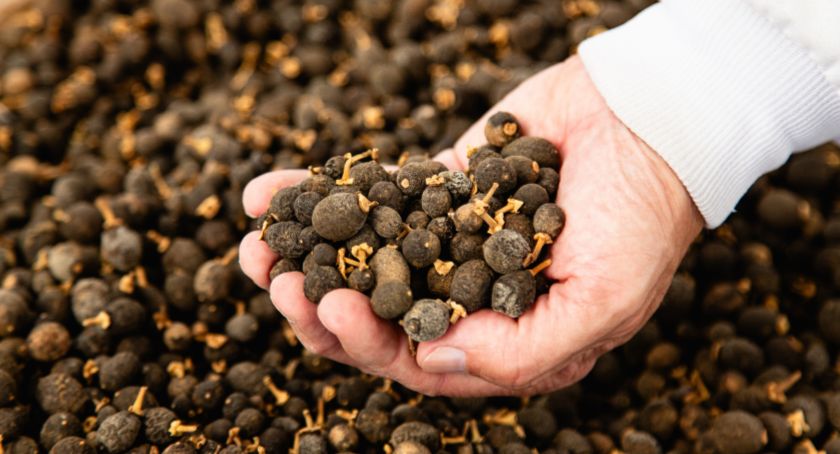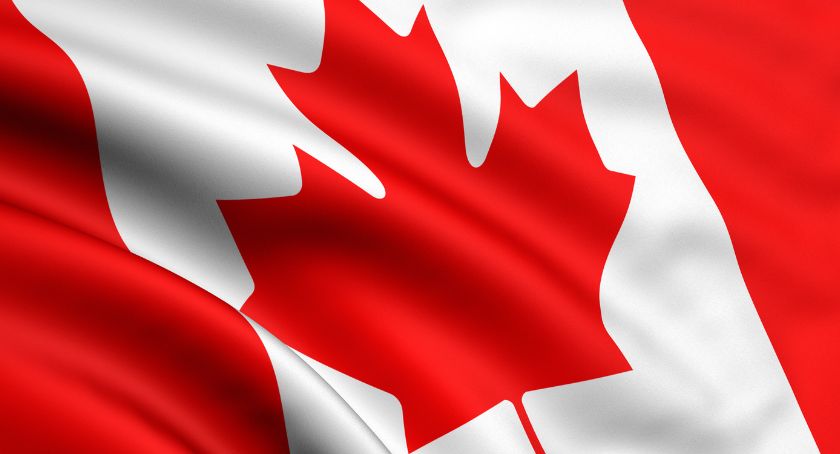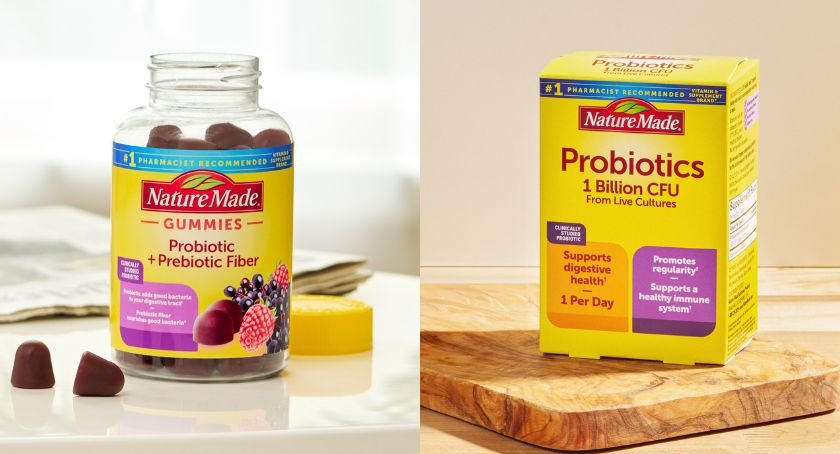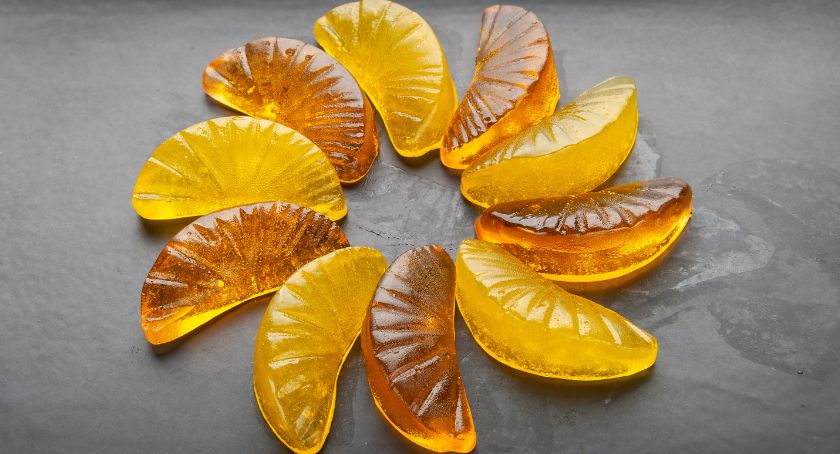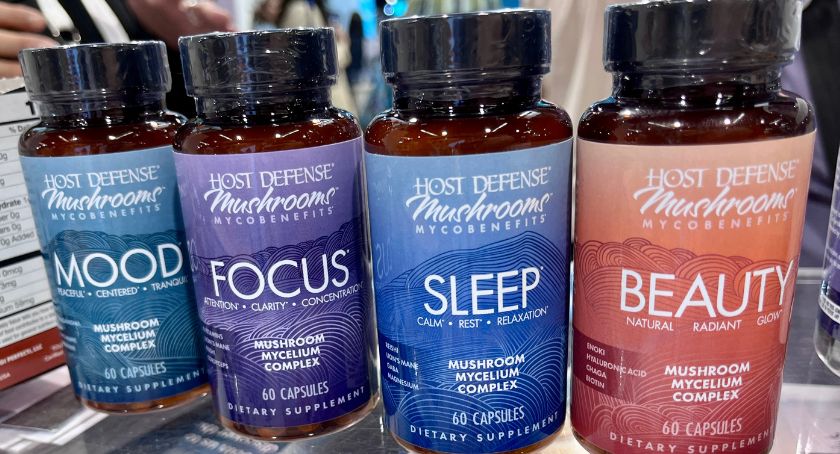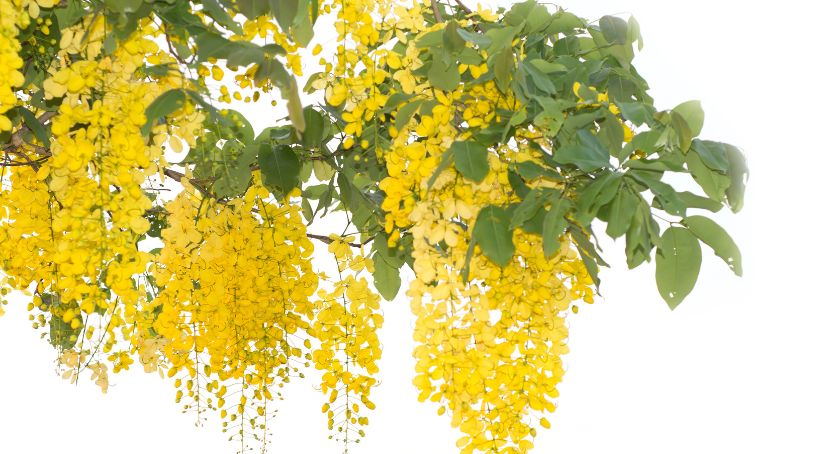Features
Breaking into the Healthy Beverage Market: Hydration, Energy and Beyond
Prebiotic sodas, electrolytes, and teetotalers drive the drinks market in fresh directions.

By: Sean Moloughney
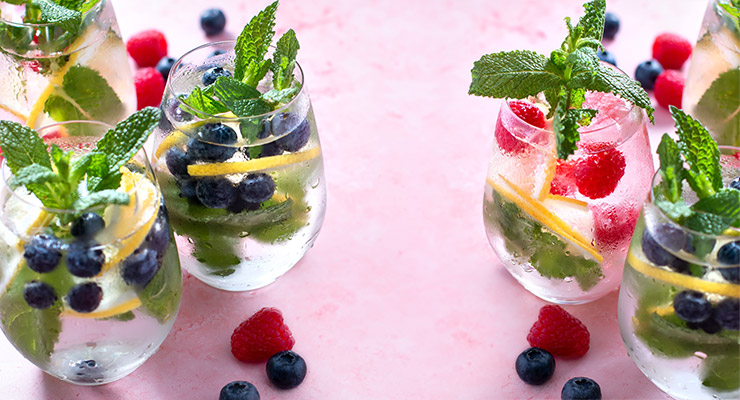
Young adults in the U.S. have become progressively less likely to use alcohol. According to Gallup, 62% of adults aged 18-35 say they drink alcohol, down from 72% two decades ago. Young adults are also drinking less frequently and are less likely to drink to excess.
Why? Growing public concern about the health risks of alcohol consumption, particularly among young adults, seems to be a big part of the equation.
According to Gallup data, young adults are particularly concerned that moderate drinking is unhealthy, with more than half (52%) now holding this view, up from 34% just 5 years ago. That 18-point increase in concern compares with a 13-point increase among middle-aged adults and little change among those aged 55 and older.
No longer boxed into “Dry January” and “Sober October,” more consumers are skipping the booze all year long, and opting for healthy alternatives.
If you were wondering if the sober-curious movement was sustainable, consider the story of Athletic Brewing, which has become the top nonalcoholic beer brand by sales in U.S. grocery stores, according to a Wall Street Journal analysis of NielsenIQ data.
In fact, nonalcoholic beer has become the fastest-growing segment of a bear beer market, even though it accounts for a small slice of total sales.
Founded in 2017 by former hedge fund manager Bill Shufelt, Athletic Brewing has tapped into consumer thirst for craft beer without the buzz. Along with nonalcoholic beer, the company offers a line of hops-infused sparkling water with natural flavors like black cherry, blood orange, lemon lime, and mango.
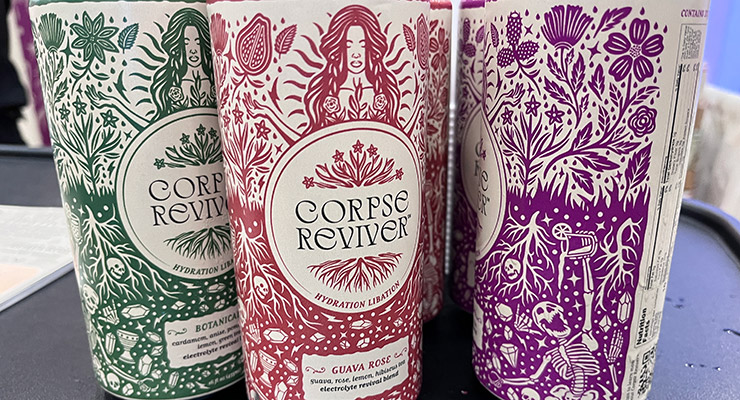
Hydration & Electrolytes
Coinciding with the teetotaling trend, consumers have been highlighting hydration as part of their lifestyle routines.Precedence Research estimated the global electrolyte drinks market at more than $33.4 billion and expects the market to reach nearly $59 billion by 2032 with a CAGR of 5.9% from 2023 to 2032.
Flipping the script on plastic, and breaking the mold of what a beverage brand can be, Liquid Death has gained a strong following of consumers attracted to the canned water brand with unique designs.
Even founder Mike Cessario didn’t expect the brand to resonate with such a broad audience, telling CNBC he envisioned the tall-boy cans would catch on with musicians who need to stay hydrated and fans who opted out of alcohol and sugary energy drinks.
Along with its Mountain Water, Liquid Death offers Iced Tea with B vitamins, flavored sparkling water, and an electrolyte drink mix called Death Dust that offers five essential minerals and 200 mg of potassium per 35-calorie stick pack.
In April, Liquid Death became an official NASCAR partner with a wide-ranging, multi-year agreement that makes Liquid Death the “Official Iced Tea of NASCAR.”
The brand’s line of low-calorie, low-sugar iced teas contain B vitamins and “a microdose of caffeine,” available in five flavors: Green Guillotine, Slaughter Berry, Grim Leafer, Rest in Peach, and Dead Billionaire.
Liquid Death’s iced tea now holds the number-one best-seller position in the RTD tea beverage category on Amazon as defined by total retail sales. The company is killing it on social media too, with more than 8 million followers across TikTok and Instagram, making it the third-most-followed beverage brand globally.
The company is rumored to go public this year and was valued at $1.4 billion in March when it announced the closing of a $67 million financing round that will help the company further scale distribution and accelerate product innovation.
Meanwhile, the female-founded Corpse Reviver — sister brand to Anna Zesbaugh’s Hooch Booch hard kombucha — offers a “better-for-you” electrolyte beverage in Guava Rose, Botanical, and Prickly Pear varieties. Available in RTD cans, Corpse Reviver features 75 mg of L-theanine, 175 mg of magnesium, 20 mg of zinc, 325 mg of potassium, and 20 mg of sodium.
According to the company, “Corpse Reviver is more than a drink; it’s a versatile companion tailored to meet your accelerated needs. Whether you’re gearing up for a rigorous gym session, taking a mindful break between spirited indulgences, or discreetly sipping in a speakeasy, Corpse Reviver adapts seamlessly to various occasions. Our beverage doesn’t just replenish electrolytes and enhance hydration; it revitalizes your lifestyle. Embrace the simplicity of better-for-you ingredients as you sip and savor the essence of a revived way of life.”
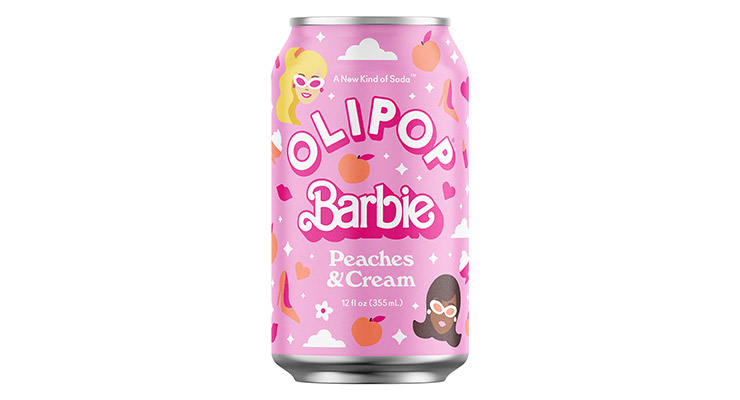
Prebiotic Soda
Meanwhile, the prebiotic soda brands Olipop and Poppi have opened a portal to another world where soda is no longer shunned.U.S. sales of a dozen or more prebiotic beverage brands are estimated at $100-150 million, according to Beverage Marketing Corp, triple what it was a year ago.
Olipop recently collaborated with Barbie to launch a limited edition Peaches & Cream flavor that contains 9 grams of dietary fiber and 5 grams of sugar. “Made with real peach juice and aromatic vanilla, dreamy Peaches & Cream is sweet, but not too sweet, and every bit as iconic as Barbie,” the company said.
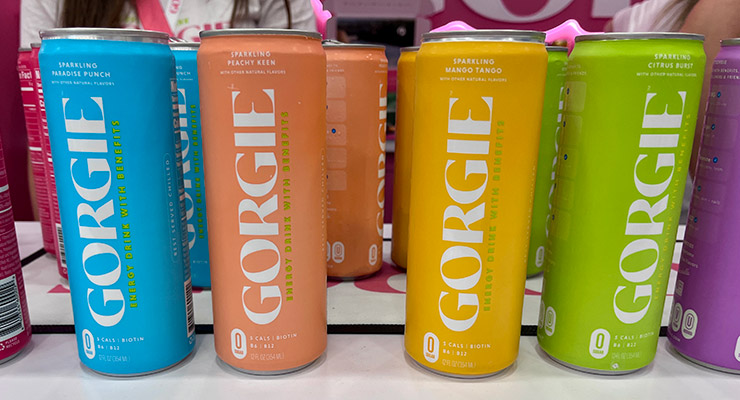
Energy Drinks
Speaking of collaborations, this spring the Philadelphia Phillies became the first Major League Baseball team to sign an exclusive energy-drink supplier, Ghost Beverages, according to the Philadelphia Inquirer.Three varieties of Ghost’s, 8.4-oz. energy drinks (the Original “OG,” Orange Cream, and Tropical Mango) are now sold at concession stands and kiosks throughout Citizens Bank Park.
The Ghost drinks, which contain caffeine, taurine, Carnipure L-Carnitine, Neurofactor whole-coffee fruit extract, and alpha-GPC, are also served as a backbar mixer and available as a cocktail. Ghost will also host samplings and special events throughout the season, according to the Inquirer.
Competing with Ghost, brands like Prime, Zoa, and C4 continue to vie for share of the energy drinks market.
Meanwhile, turning the tide on a traditionally male-focused category, Gorgie energy drinks — founded by Michelle Cordeiro Grant after she built and sold her lingerie startup Lively — is more than a beverage brand. The company says it’s: “A community, a brand, a platform on a mission to make wellness fun! We are a brand with benefits creating beverages with benefits, and we are starting with energy. We believe that wellness, energy, supplements and good for you products should no longer be a sacrifice in taste, vibe or aesthetic.”
Cordeiro Grant said in an interview with Bristol Farms: “All the energy drinks I saw were full of things like erythritol, sucralose, and aspartame. And it was all in packaging that was either geared towards men or didn’t feel relevant to what people want to hold today. Those products gave me jitters and crashes. Instead, I wanted a product that tastes good, feels good, and looks good too. One I was excited to drink and proud to hold.”
Featuring 150 mg of caffeine from green tea, vitamins B6 and B12, L-Theanine and 30 mcg of biotin, the stevia-sweetened, zero-sugar drinks come in Paradise Punch, Watermelon Crush, Mango Tango, and Peach Tea flavors.
Taking a different track from carbonated energy drink cans, Karma Water’s new Energy line contains 150 mg of natural caffeine, 250 mg of Cognizin Citicoline, and nine essential vitamins, without any artificial colors, flavors, sweeteners, or preservatives.
Available in Raspberry Peach, Blueberry Watermelon, and Melon Dragonfruit flavors, Karma Energy Water features the company’s patented PushCap, which stores active ingredients in an airtight chamber until released by the consumer.
Kelley Bridenbaugh, marketing manager for Karma Water, said the company is targeting health-conscious adults. “We’re not going after the Red Bulls or the Monsters of the world. This is sustained energy you can drink throughout the day,” she said. “Cognizin plays really nicely with the same demographic,” she added, as knowledgeable consumers “understand the value of a branded ingredient,” and the research that supports its efficacy and safety.
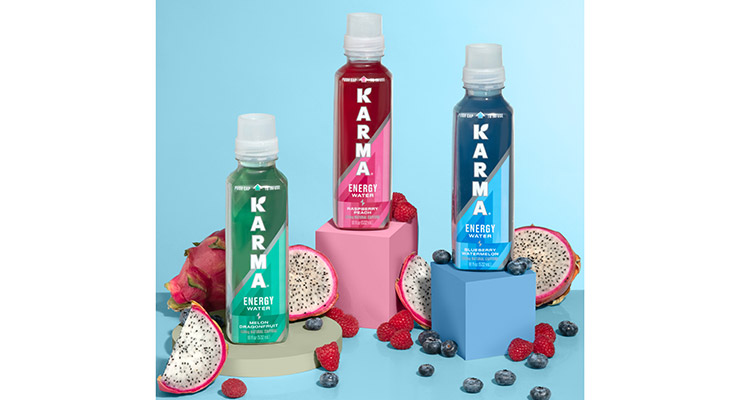
Market Assessment
“We’re seeing a push for more natural, healthful beverages,” said Nicole Staniec, vice president of beverage products at Virginia Dare, the 100-year-old flavor and extract company that recently moved from Brooklyn, NY to a new state-of-the-art facility in Carteret, NJ.“There’s still a place for high-caffeine energy beverages, but we’re seeing a transition toward more sustainable energy, clean label, good-for-you products — energy but with other benefits,” like hydration or cognitive function.”
These days, with the higher cost of goods and services, consumers are searching for value, Staniec noted. “It makes sense they’re looking for products that give them additional benefits, so they’re getting the most value out of their money for the products that they’re buying.”
More mindful of their health and wellness, many people are also actively trying to cut down on the amount of sugar and carbs they consume, opening the door for natural sweeteners.
Alongside cognitive health, glucose and weight control are on-trend, Staniec said. “Women’s health is another functional area that is starting to take off, with products specifically targeted for different stages of women’s lives.”
Mocktails and alcohol alternatives are having “explosive growth right now,” she said. Whether you call it “mindful consumption” or “sober-curious” or some other concept, both traditional companies and newer startups are coming to the market with products for everyone to feel they are part of the party.
“I do think there’s still room to grow in hydration, and it’s usually hydration with another functional benefit,” said Staniec. For example, she noted some interesting developments in juice-based hydration products for active kids.
Ultimately though, “at the end of the day, it’s still about taste,” she added. “The functional benefits may peak consumer interest and draw them in, but if it doesn’t taste good they’re going to find something else to spend their money on.”
Flavor masking and modification is a complex, customized process. No one size fits all, Staniec said. “We have a very large library of masking flavors, and we use those tools to mask the off-notes that may come from any of the active ingredients.”
Once the taste profile is neutralized, scientists can then layer “characterizing flavors” into the formulation.
Staniec said nostalgic flavors like certain candies and gummies from the 1980s and 1990s have taken over the spotlight (again). And for younger generations, these flavors offer “new-stalgia” since they’re experiencing them for the first time.
About the Author: Sean Moloughney has been the editor of Nutraceuticals World since 2012. He can be reached at smoloughney@rodmanmedia.com.



